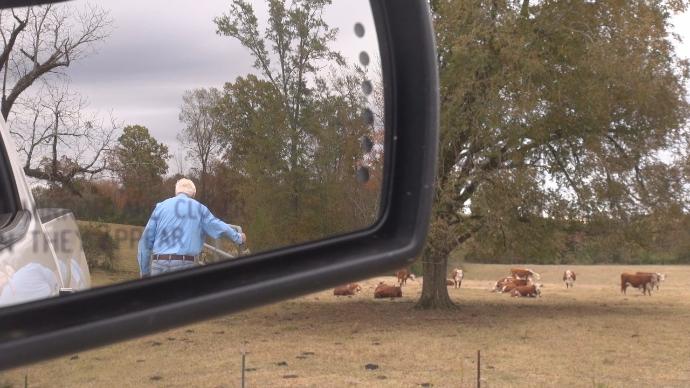Cattle market crash: saving American family farms

By Candace Barnette Posted: Tue 4:53 PM, Nov 29, 2016 Updated: Tue 7:23 PM, Nov 29, 2016
KEMPER CO., Miss. (WTOK) – It’s a crisis for the American family farmer.
“Rural America is slowly dying,” local cattleman Fred Stokes says.
Stokes has seen, firsthand, the effects that big corporations have had on farms and ranches. And it’s not just the farmers who are affected. Stokes says the repeal of Country of Origin Labeling mandates often mean you, the consumer, are paying more for cheaper beef that could be from anywhere – countries like Brazil have greatly increased production and exports.
“And that’s a region of the world that still has foot and mouth disease, a very contagious and deadly disease,” Stokes says.
Many small towns who thrived on agriculture haven’t been able to survive the market crash.
“We watch this money deteriorate out of our rural economy, destroying our way of life in rural America, and right here in Mississippi is a prime example,” Joe Maxwell with the Organization for Competitive Markets says.
So what does it take to fight this problem?
“One hand you fight the big guns on the other side of this debate,” Stokes says. “On the other hand, you fight apathy.”
Stokes says the first step should be re-instating Country of Origin Labeling. Without it, farmers say the future is grim.
“It’s all going to be controlled by big corporations instead of the farmers that should be doing it,” OCM president Mike Weaver says.
The next step, resurrecting anti-trust laws. Think Theodore Roosevelt in the late 1800s.
“Read the history book. This is not the first time this country has seen a power grab by large corporations,” Maxwell says.
“If they are the market, and they own their own cattle, they don’t have to bid for my cattle,” Stokes explains.
And finally, farmers say they want a fair and balanced trade agreement.
“With this new administration we need a fair opportunity for fair markets,” Maxwell says.
Many have hope in this incoming administration, but they say there’s plenty of work left to put these problems behind them.
See the video.